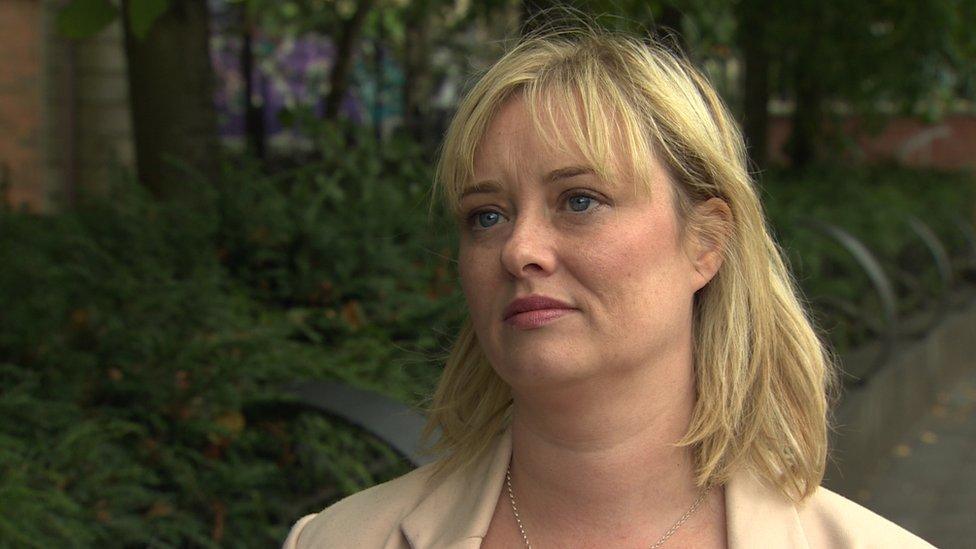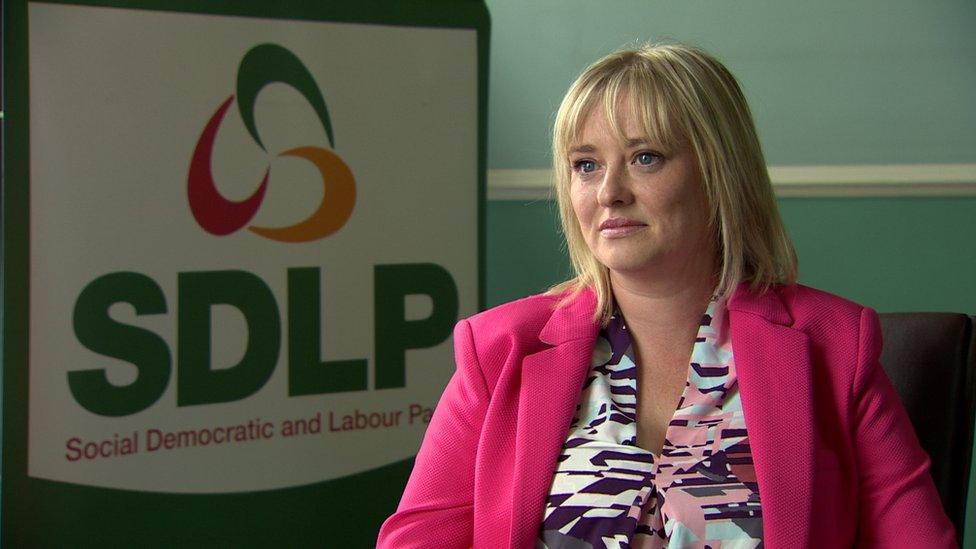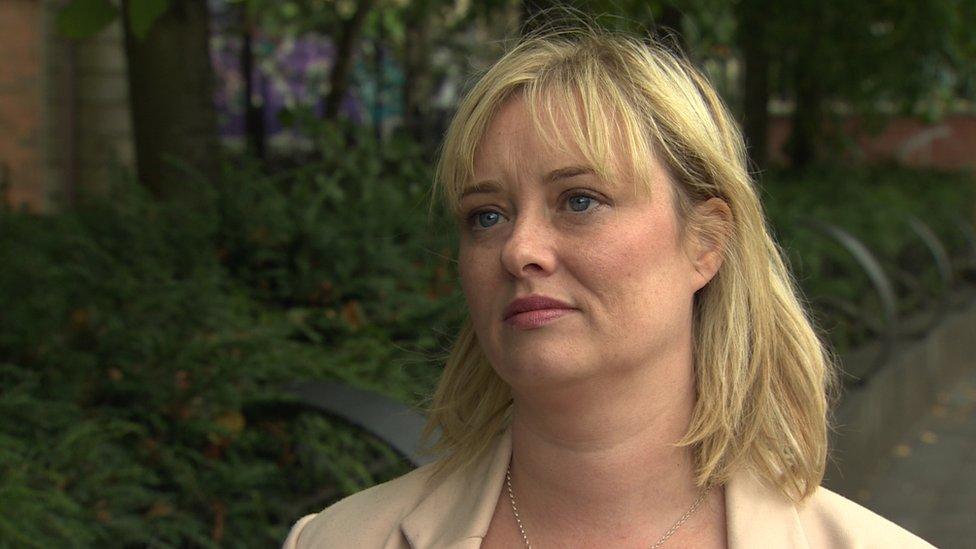Máiría Cahill 'denied election chance' due to address disclosure
- Published

Máiría Cahill does not want to disclose her home address
SDLP councillor Máiría Cahill says she cannot defend her seat in the upcoming local government elections due to an administrative issue.
Ms Cahill currently sits on Lisburn and Castlereagh City Council.
However, because she is unwilling to make public her home address, due to a restraining order protecting her from an individual, she cannot stand in the May election.
Speaking on the BBC's Nolan Show, she described the situation as "farcical".
Legislative issue
Candidates at Northern Ireland Assembly and UK Parliamentary elections can choose to not have their home address published on a statement of nomination and the ballot paper.
However, legislation has not been updated for local elections which would allow the option of keeping a home address private in circumstances such as those of Ms Cahill, who has been the victim of harassment and intimidation in the past.
Chief Electoral Officer Virginia McVea has written to the NIO and Electoral Commission "highlighting this as an issue they may wish to consider for legislative change".
Ms Cahill told the Nolan Show she was "very, very disappointed" to learn she will not be able to stand for election.
"If I don't put my home address on the form, the chief electoral officer has no option but to disqualify me as a candidate," she said.
"We're now in a farcical situation where I have actually campaigned on issues of safety in relation to females in particular and due to this issue, I have to take the decision not to run as a candidate."
She added that her personal safety and that of her daughter was "of paramount importance" to her.
"Her safety and mine has to take precedence over providing my address on a form."
Allow X content?
This article contains content provided by X. We ask for your permission before anything is loaded, as they may be using cookies and other technologies. You may want to read X’s cookie policy, external and privacy policy, external before accepting. To view this content choose ‘accept and continue’.
Ms Cahill was co-opted as an SDLP councillor in Lisburn and Castlereagh in July 2018.
She explained that she did not need to disclose her address at the stage of co-option.
'Victimised'
"I feel like I've been a good councillor over the last 10 months.
"But I really feel that essentially I'm being re-victimised for being a victim. I effectively have to sack myself from a position that I've been in because of an issue that's outside of my control and that's very, very disappointing to say the least."
In a statement, the Electoral Commission said: "The NIO is responsible for making any changes to electoral law in Northern Ireland. We will raise this issue with the government as part of our election reporting."
A spokesperson for the NIO said the government "is sympathetic to the concerns raised".
He added: "This requirement has been in place since 1962 and it would require legislation to change the law. This is not possible ahead of the local elections deadline on Monday. We will urgently review this issue going forward."
'Serious concerns'
SDLP leader Colum Eastwood said: "It's a disgrace that a victim, whose safety would be jeopardised by publication of her address, is not afforded the same protection in a local government election that every assembly and Westminster candidate can avail of."

SDLP Leader Colum Eastwood described the situation as 'a disgrace'
He added: "We have raised our very serious concerns with the chief electoral officer and we will be contacting the secretary of state about this unacceptable oversight.
"These rules effectively bar anyone under threat, including victims of domestic violence, from running for local government. That is intolerable."
- Published9 July 2018

- Published13 September 2018
